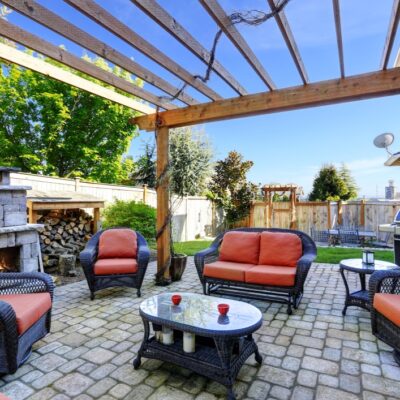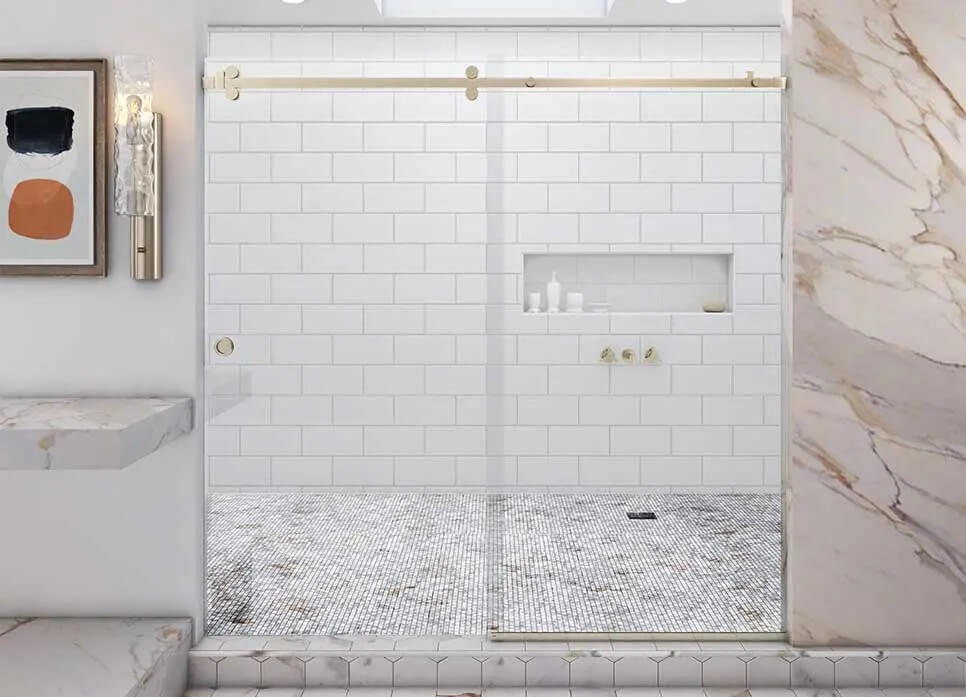
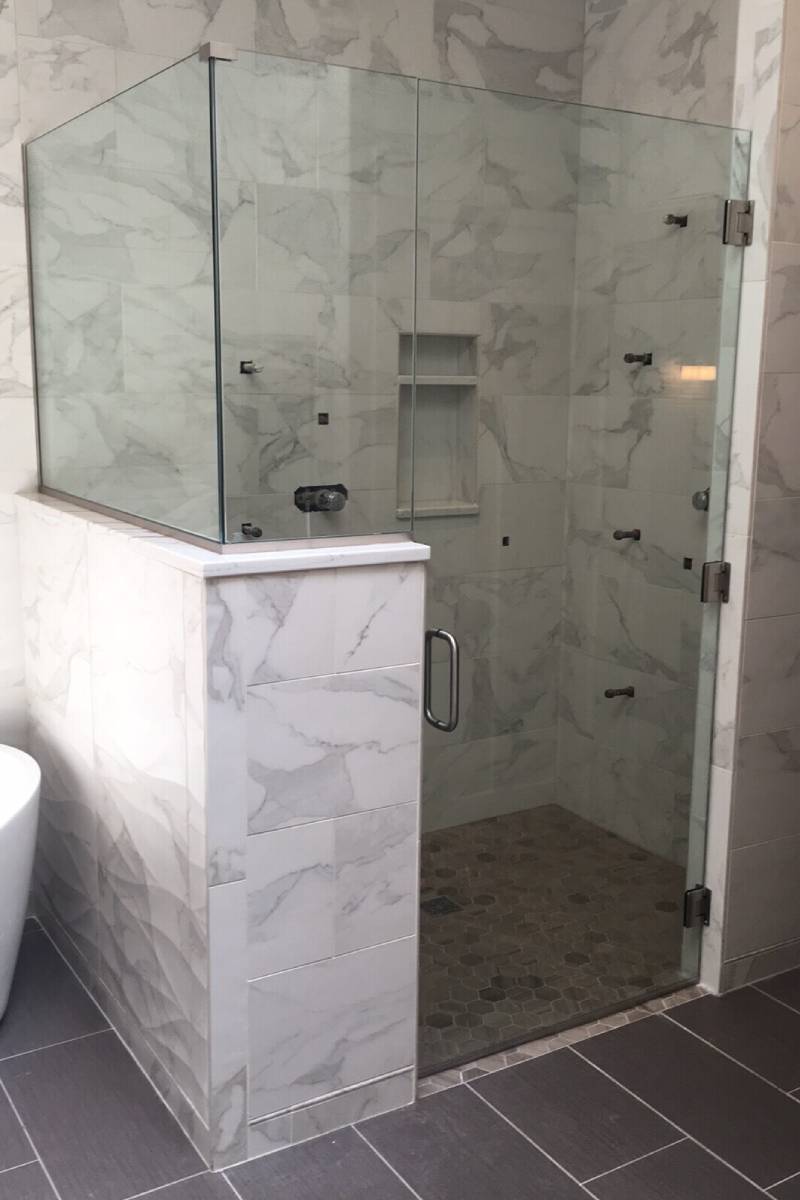
Hinge Shower Doors: Classic Elegance with Some Considerations
Pros:
- Aesthetically pleasing with a timeless design.
- Durable and long-lasting when properly maintained.
- Easy to clean and maintain due to fewer moving parts.
- Can add additional fixed glass panels for custom shower designs
Cons:
- Requires adequate space for the door swing, which might not be suitable for smaller bathrooms.
- Potential safety concerns, especially for individuals with mobility issues, as the swinging door can be a hazard.
- Not as airtight as other options, which may result in some water leakage.
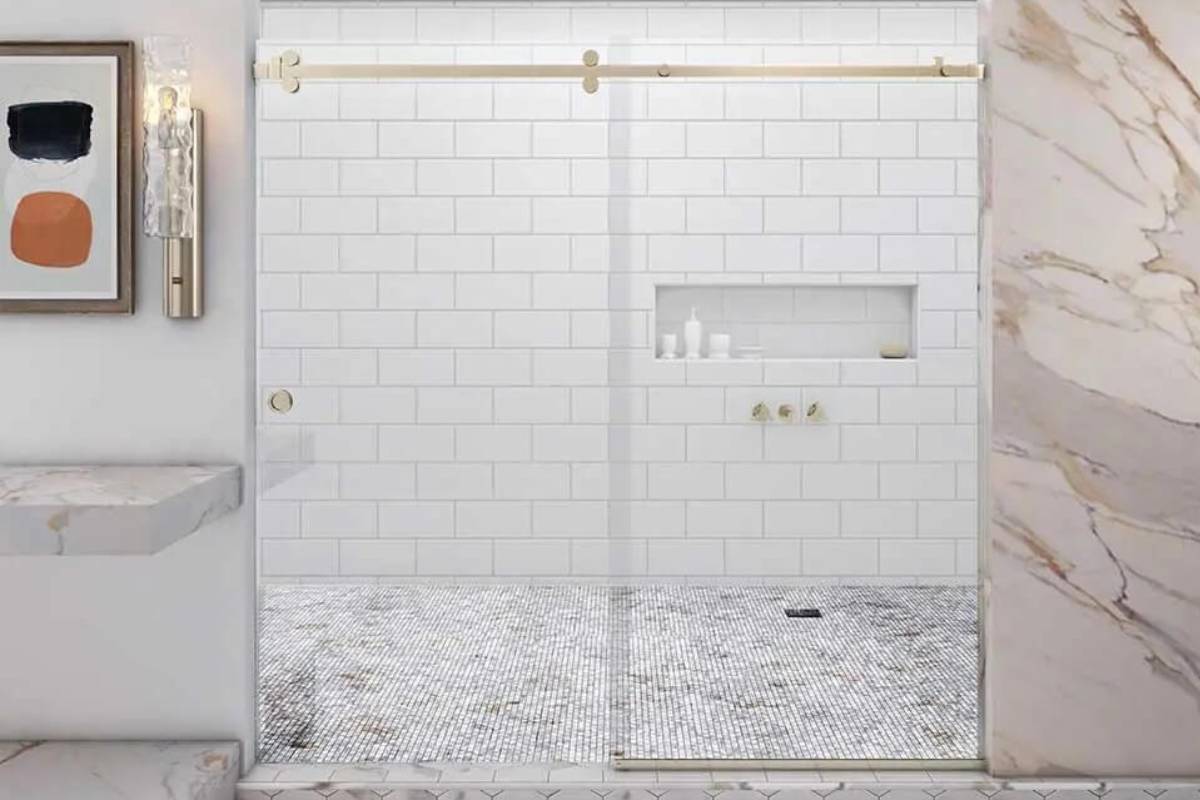
Bypass Shower Doors: Space-Saving and Practical
Bypass shower doors, also known as sliding doors, consist of two or more panels that slide past each other on tracks. This design is an excellent space-saving solution, making it ideal for smaller bathrooms or those with limited space for a door swing. Bypass doors are often chosen for their practicality and ease of use.
Pros:
- Space-efficient, making them suitable for smaller bathrooms.
- Smooth sliding mechanism is easy to operate.
- Versatile design options, including framed, and semi-frameless.
Cons:
- Tracks can accumulate soap scum and dirt, requiring regular cleaning.
- Requires a perimeter metal frame to support the door panels
- Requires a least a 48” opening width to accommodate easy access
Bypass Shower Doors Size & Dimensions
- 82” H x 60” W
- 82” H x 48” W
- 78” H x 60” W
- 78” H x 48” W
- 76” H x 60” W
- 76” H x 48” W
- 75.5″ H x 72″ W
- 75.5″ H x 66″ W
- 75.5″ H x 60″ W
- 75.5″ H x 54″ W
- 75.5″ H x 48″ W
- 62” H x 60” W (Bath Door Only)
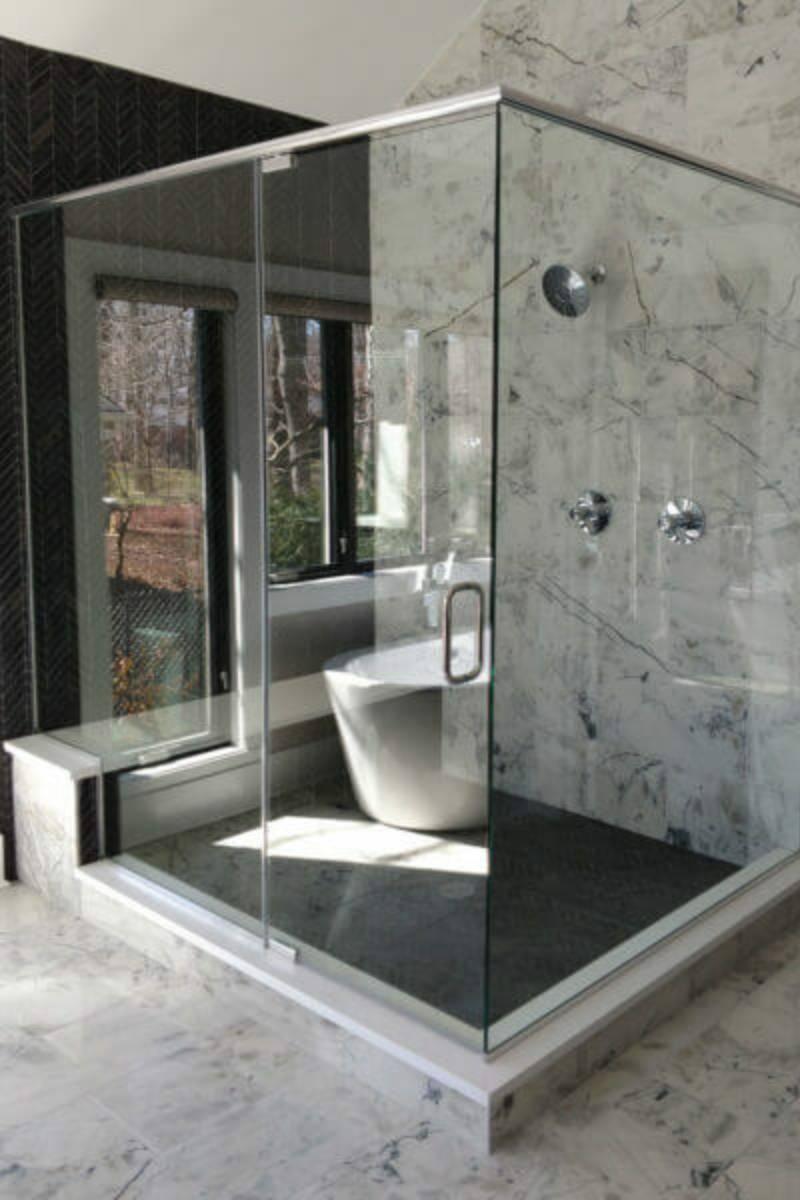
Pivot Shower Doors: Contemporary Style with Accessibility Considerations
Pivot shower doors have a single panel that rotates on a pivot hinge, typically located at the top and bottom of the door. This design offers a contemporary and streamlined appearance, often favored for its minimalist aesthetic. Pivot doors can be a practical choice for individuals with mobility concerns, providing larger size doors and more door location options.
Pros:
- Contemporary and stylish, adding a modern touch to the bathroom.
- Suitable for smaller bathrooms as they have more door location options than hinge doors.
- Accessibility for individuals with mobility challenges.
Cons:
- Pivot doors may not be as airtight as some other options, potentially leading to minor water splashes.
- Installation can be more complex compared to other types, requiring precise measurements.
Pivot Shower Door Sizes and Dimensions
- 74″H x 48″ W
- 74″ H x 36″ W
Age-in-Place and Safety Considerations
How to choose the right Shower Door - Step by Step Guide
Step 1: Decide on your Shower Door Type
The first step before you choose a shower door is to identify what kind of Shower door you need. For example, if your bathroom has a tub, then you need to go for a tub Shower door, and if it’s a standing shower, then you go for just the Shower door. This analysis will help you avoid any post-purchase headaches and returns.
Step 2: Swing or Sliding
Now that you have decided what type of door you need, your next step is to decide on a Swing or Sliding. If you have a smaller bathroom, then a sliding door is the most logical choice, as Swing shower doors are made for larger or corner bathrooms.
Step 3: Choosing your glass textures
Depending on your choice or appeal you are going after, you can choose from frosted, patterned, or clear-style glasses. Look at the aesthetics of your bathroom and then choose the glass texture based on your vision. If you need custom glasses and mirrors, then that is also something you can think about.
Step 4: Frameless or Framed?
The last step is deciding whether to go for a frameless or framed shower door. Framed doors are normally pretty popular and fit into the average home, but frameless shower doors are becoming very popular because of their sophistication and ability to add character to the bathroom.

